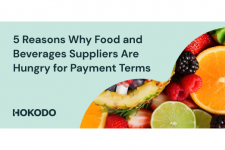Retailers shouldn’t carry the blame for food waste, says BRC

Opie expressed frustration that retailers were frequently accused of doing too little to reduce food waste, despite them outperforming households, manufacturers and the hospitality sector.
“Our slight annoyance at the moment is some of the focus on retail is distracting a little from the bigger target in food waste, which is in the household and manufacturing,” said Opie.
Retail accounted for 0.25Mt of the 15.5Mt of food wasted in the UK each year, according to recent figures from the Waste & Resources Action Programme (WRAP). Manufacturers accounted for 3.9Mt and households 7Mt. Hospitality wasted 0.9Mt a year and 3.5Mt of wasted food was pre-factory – such as that from farms.
Success
Opie claimed the BRC’s waste reduction programme was one of its most successful activities over recent years.
“As a result, we’ve done a lot of work at the BRC around trying to tell the story better about food waste, which is why we need to focus on where the biggest areas of food waste are, which tends to be back down the supply chain and in the household,” he said.
However, supermarkets could do a lot more to reduce the waste they produce, claimed Trewin Restorick, chief executive and founder of the food waste charity Hubbub.
“Retailers have a central role to play in communication with both consumers and suppliers and could use this position of influence better,” he said.
Supermarkets not done enough
For instance, Hubbub was not convinced supermarkets had done enough to ensure their promotional campaigns and packaging were not generating waste.
More collaboration between retailers was necessary, said Restorick. He called for others to adopt the approach used by Tesco, whose supermarket waste was independently audited and publicised.
Mark Varney, director of the food redistribution charity FareShare, agreed that more transparency from supermarkets was required. But they also needed to work with manufacturers and consumers to help them reduce their food waste too, he added.




















